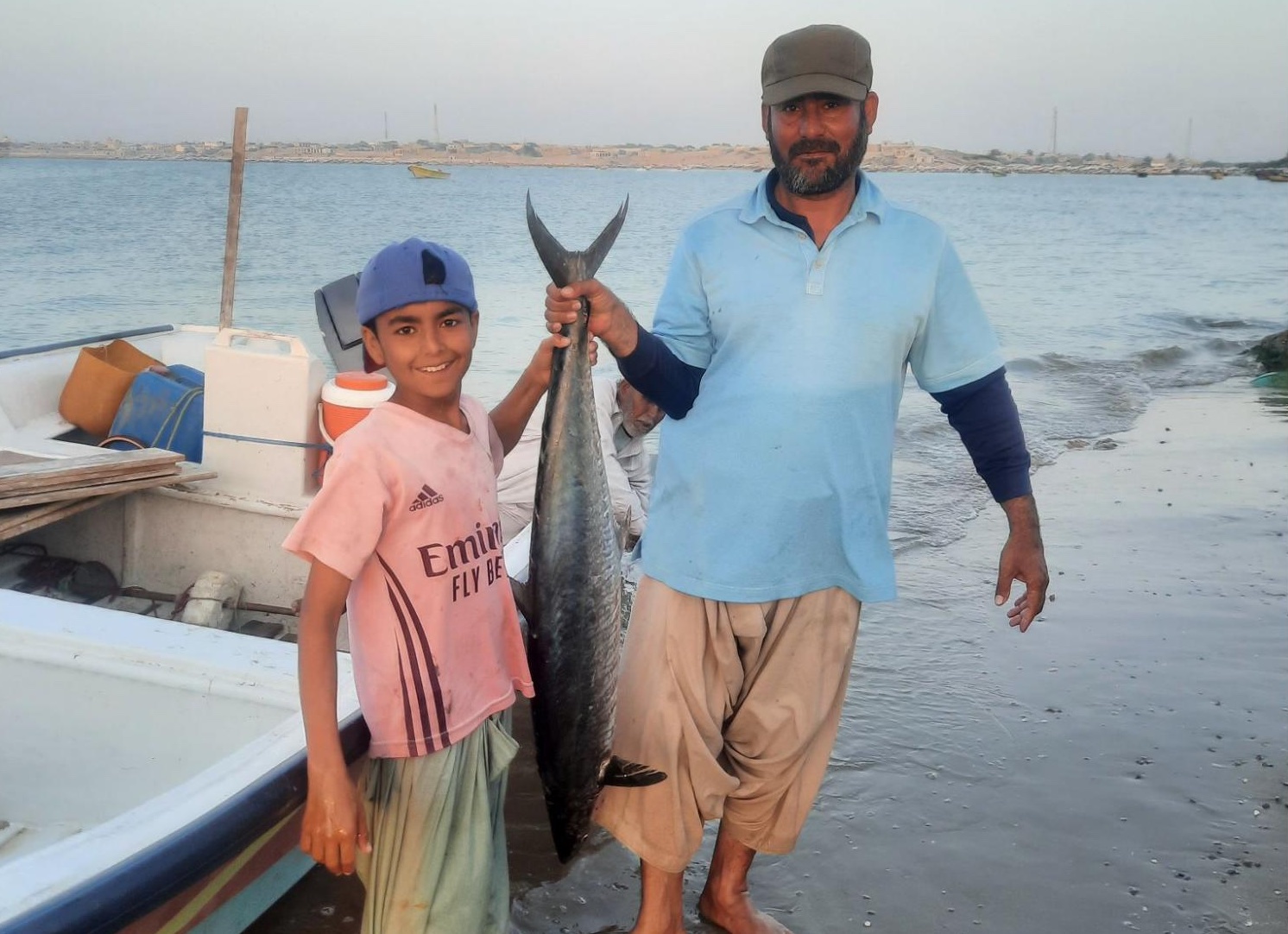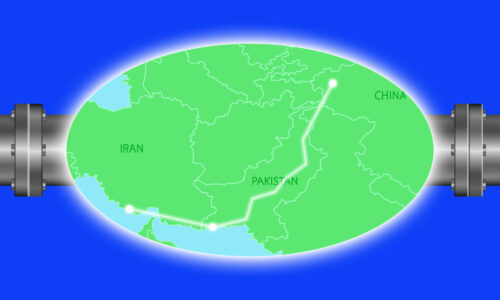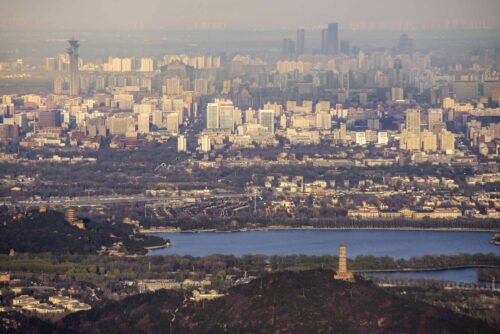Is China going to eat Pakistan’s fish?
There have been multiple reports of Chinese trawlers off the coast of Pakistan’s Balochistan province. The Chinese consul-general in Karachi says they have not engaged in illegal fishing, but locals fear for the future of their fish stocks.

Mullah Band town is a tiny town of fishermen in the Gwadar District of Pakistan’s southwestern Balochistan Province. It’s right next to the deep-sea Gwadar port, which Chinese authorities are developing as the Indian Ocean terminus of the the China-Pakistan Economic Corridor (CPEC), a key spoke of Beijing’s Belt and Road Initiative (BRI).
On a pleasant evening in March, I sat with a group of fishermen in Mullah Band. One of them, Mohammad Jan Baloch, told me of his fears about the presence of Chinese trawlers in the waters of Balochistan. He said had seen five Chinese trawlers in 2021 off the coast of Surbandan, a town 25 kilometers (15 miles) from Gwadar. “Those were the huge trawlers that I had seen for the very first time,” he told me. “They can wipe out the entire fish stock of our sea, depriving us forever of our livelihoods by depleting the fish stock in the sea,” he said.

Sindh is fished out, now the trawlers are coming for Balochistan
In the early months of 2021, reports began emerging of 12 Chinese trawlers docked at Pakistan’s biggest port at Karachi, in Sindh Province, around 480 km (300 miles) from Gwadar as the crow flies.
Fishermen from Sindh started protesting against the Chinese trawlers and the Pakistani authorities for allowing them to dock and fish in Pakistani waters.
“We ourselves do not have fish to catch in the waters of Sindh,” a fisherman named Wahid in Karachi told The China Project. “From dawn to dusk, we are in the sea, but our catch is hardly enough to make ends meet. If the Chinese trawlers are allowed to fish, we will be wiped out from the scene, as there will be no more fish in the sea.”
The Pakistan Fisherfolk Forum (PFF), an organization fighting for the socioeconomic and political rights of indigenous fisherfolk communities in the country, has vocally opposed and protested against the presence of Chinese trawlers since they first docked at Karachi in 2021. Saeed Baloch, the general secretary of the PFF, said they had protested against the presence of Chinese trawlers because the fishermen community is already struggling.
“Due to the dwindling fish stock in the sea of Sindh Province…most of our fishermen go to the sea of Balochistan Province in order to fish, which the fishermen of Balochistan are opposed to,” he told The China Project.
Over the decades, the fishermen in Balochistan have complained about the illegal trawling by Sindh-based trawlers. Pakistan’s coastline is 990 kilometers (615 miles) long, shared between the two provinces, about 70% of which is in Balochistan. As no license is required to fish in the sea of Sindh, local and international trawlers have depleted the fish stock in Sindh over the decades.
The annual catch of Pakistan is estimated at 500,000 metric tons (more than 550,000 U.S. tons). China has the world’s largest deep-water fishing fleet with nearly 3,000 ships. In 2021, Chinese fishing vessels are estimated to have caught more than 12 million metric tons (13.2 U.S. tons), but it unclear how much of this was from China’s coastal waters, and any numbers coming from China’s global fishing fleet should be treated with suspicion.
A study by researchers at Stockholm University forecasts that China is likely to need up to 18 million metric tons (19.8 U.S. tons) of additional seafood by 2030 to satisfy domestic consumption — a demand it will meet in part by expanding its distant water fishing operations.
According to PFF’s Saaed Baloch, following the depletion of the fish in Sindh Province, both Sindh-based and international trawlers have been eyeing the less exploited fish stocks of Balochistan.
Haji Khudad Wajo is a leader of the fishermen community at Gwadar port. Ever since the announcement of CPEC back in 2015 by Xí Jìnpíng 习近平, Wajo has been concerned the future of the local fishermen.
“We have been protesting for decades, to raise our voices against the Sindh-based trawlers, which come all the way from Sindh Province to fish illegally in the waters of Balochistan, particularly in Gwadar, where there is enough fish stock,” Wajo told The China Project. He added, “Although the Sindh-based trawlers rule the roost in the sea of Balochistan, numbering in thousands, the Chinese trawlers, if they are allowed to fish, will be the death of fishermen and the fish stock in the sea.”

Solar panels for fish?
Even before the arrival of the 12 Chinese trawlers, Chinese Consul General Lǐ Bìjiàn 李碧建, who is stationed in Karachi, reportedly said he had provided assistance to the fishermen community of Gwadar, as part of investments under the CPEC projects. In 2020, he told Pakistan Today:
We are providing engines, solar panels, and fishing nets, etc. to the local fishermen to help increase their fishing capacity. So we advise them to organize, and to purchase bigger fishing boats to increase fishing capacity. They may also adopt modern fishing methods and technology.
Wajo confirmed to The China Project that the consul general had provided some help by giving them a few engines, solar panels, and fishing nets. However, he said, these were not worth the cost of the fisherman losing their livelihood at the hands of Chinese trawlers.
The trawlers also pose a greater ecological threat to the ecosystem of the sea. “There is no doubt the trawlers are dangerous to the ecosystem of the sea,” said Dr. Hafeez Jamali, a local researcher. “The trawlers use very dangerous nets, sweeping the floor of the sea while destroying each and every living thing. These nets do not even spare the eggs of the fish.”
International studies have linked destructive fishing practices of Chinese trawlers with the drying up of fish stocks in several countries.
Maqsood Kalmat is a local industrialist who runs a fish factory in the port of Gwadar. As of now, he informed The China Project, his factory, like most other fish factories in the Gwadar District, is on the verge of closure because local fishermen cannot supply enough fish.
In an interview with The China Project in Karachi, Chinese Consul General Li Bijian flatly denied the presence of Chinese trawlers in Pakistan. “As for the five Chinese trawlers that were spotted in Balochistan, they were fishing in international waters, as per international rules and regulations,” he said. “Due to bad weather, they contacted me to inform the Pakistan authorities, via the Chinese consulate in Karachi, because they were near Gwadar. So, after being granted permission by the Pakistani authorities, they came to Gwadar due to bad weather.”
The secretary of the Balochistan Fisheries Department, Babar Khan, also said that there are Chinese trawlers operating off the coast of Balochistan. He also cited the bad weather that forced the five Chinese trawlers to go to Gwadar.
But background interviews suggest that Ali Haidi Zaidi, Pakistan’s former Federal Minister for Maritime Affairs, was interested in giving Chinese trawlers licenses to fish in Pakistan, which is why the 12 Chinese trawlers had docked at Karachi.
Li Bijian said Chinese trawlers would be interested in fishing in the country legally, and with proper rules and regulations, if given licenses to fish.






